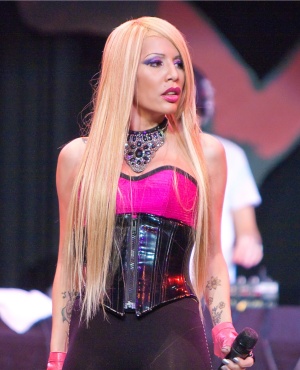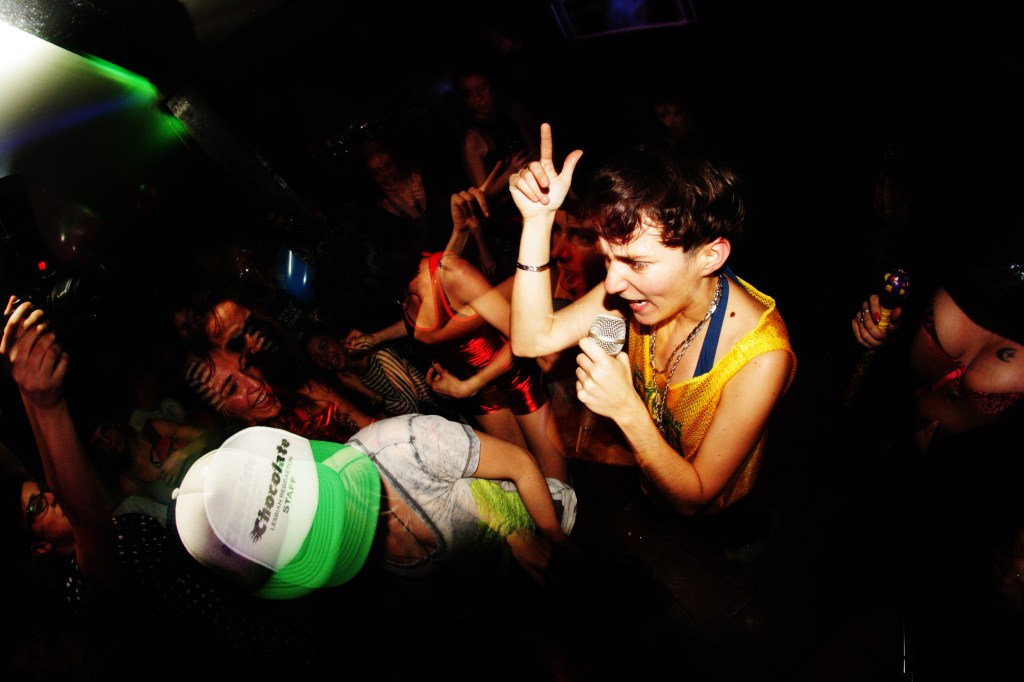My Big Confession
I am a reggaetón fan. There, I’ve said it.
Nothing gets me dancing quite like the pulsing bass and seductive hooks of popular reggaetón, and there is nothing like a classic Daddy Yankee or Don Omar track to ignite the dance floor with swinging hips and shuffling feet. Perhaps it’s my fond memories of travels in the Dominican Republic and Peru and my Fulbright year in Colombia that feed my affinity to the genre’s dembow beat and frenetically delivered lyrics. Perhaps it’s simply conducive to dancing.
There have been entire college courses taught on reggaetón—its relation to race, nationality, class, gender…all of its complexities.
Although it has a variety of roots, the genre is said to have originated in Panama, where Spanish hip hop and Jamaican reggae melded together. However, it is most associated with Puerto Rico, where it emerged as an underground music style in the 1980s and went on to gain a following. Among the mainstream songs of the early 1990s were Dembow by Nando Boom, Pantalón Caliente by Poncho Pan, and Estás Dulce by La Atrevida. By the early 2000s the genre had become commercially popular across the Americas and had broken into the charts in the United States. Today, with the rising influence of social media accelerating the cultural effects of globalization, the reggaetón audience is bigger than any other Latin genre.
Although many claim that the relatively recent commercialization of reggaetón has led to a change in tone of many popular hits (think romantic seduction in place of overt objectification), it continues to be criticized. In some nations, it has been denounced as “low class” and has served as yet another indication of divided economic and social classes. Labeled vulgar and low quality, reggaetón has been banned from public broadcast in countries including Cuba. Perhaps the most common critique of the genre, however, involves the way it talks about women.
Even though the likes of Ivy Queen have represented women in reggaetón since its inception, the genre remains saturated with testosterone, and as much as I enjoy it, I find it difficult to reconcile my feminist beliefs with the degrading and objectifying messages frequently communicated in songs.

Here’s the Situation
Young men across the Americas are too often taught, most often implicitly, that they are entitled to a woman’s attention and, at the end of an incessant onslaught of wooing, her body. Although this occurs in countless cultures across the globe, the lyrics of reggaetón songs illustrate this phenomenon…well, phenomenally.
A couple of examples:
The song “Picky” by Joey Montana is sinfully catchy and I must confess that I’ve spent too much time in my office jamming to it (ahem…only during lunch breaks, of course). Giving the lyrics a second listen, though, I became uncomfortable with their expression of male entitlement and blatant disregard for women as autonomous beings.
A sampling of some of the phrases used:
“Yo digo hola y me dice goodbye…dice que tiene novio pero yo no le creo…suena la música y lo que yo quiero es bailar contigo, nena, pero yo no puedo/No puedo, me dice, ‘Yo no quiero,’/ No entiendo porque es tan picky picky picky picky picky…” / “I say hello and she says goodbye…she says she has a boyfriend but I don’t believe her…the music plays and what I want is to dance with you, girl, but I can’t. /I can’t. She says to me, ‘I don’t want to.’ I don’t understand why she is so picky, picky, picky, picky, picky…”
You get the idea. Why is this poor woman called picky for not wanting to dance with a man who can’t accept rejection and move on with his life? And why would she lie about having a boyfriend? Hmmm…I think I have a good guess. It could be to scare away guys like her pursuer. Just a thought.
This Nicky Jam song, titled “Amanecer,” is even more jarring, mostly because the music video shows the artist following a woman around a laundromat and imploring her to come home with him. Again and again, she refuses, which only encourages him to continue his predatory behavior.

Now, in the interest of time (and personal sanity), I’m not going to delve deeper into all of the intricacies of reggaetón songs.
To be clear, almost every genre of music has objectified or degraded women. Reggaetón is not unique in this at all. Opera has even been called sexist in its portrayal of women and their bodies. This is a systemic, historically-rooted societal issue, but responses are emerging as the female voice claims more and more space within the genre.
Reggaetoneras Past and Present
Can reggaetón be empowering for women? Are reggaetoneras (female reggaetón singers) empowered? And what does empowerment look like? Although reggaetón has traditionally employed objectifying lyrics, this is not inherent to the entire genre, as stated before. Women are entering historically masculine spaces in entertainment with greater frequency. Audiences have debated whether or not it is empowering for women to employ traditional masculine rhetoric in songs, but many are reclaiming their own narrative in a manner that they define as empowering, on their own terms. This SoundCloud mix of songs by reggaetoneras serves as testament to this.
Chocolate (Choco) is a lesbian reggaetonera from Argentina who satirizes machismo culture with the lyrics of her songs while maintaining the classic rhythm of the genre. Her song “Ni Una Menos” (“Not One Less”) accompanies the social movement against gender-based violence of the same name. “No hay excusa para cubrir lo que abusa/There’s no excuse to cover up he who abuses,” she raps, continuing to implore society to open its eyes to the culture that allows for such violence and assuring victims of sexual assault that what happened to them is not their fault. The lyrics of other songs are more explicit but serve to promote the visibility of women’s issues in society. Although accused of objectifying women in the same way that many male reggaetón artists do, Choco maintains that she is simply being frank and honest about sexuality and even reclaiming it for herself.
Hailing from Chile, Tomasa del Real, who got her start playing concerts while traveling as a tattoo artist, has made similar claims. Her irreverent lyrics prioritize her own pleasure, defying machismo. Dominican artist La Insuperable accomplishes a similar feat with songs full of the self-assured swagger generally present in reggaetón.
Despite the recent surge of female reggaetón artists, the genre is indisputably male-dominated and continues to objectify women. So will I stop listening to reggaetón completely? No. I’ll continue to indulge in it from time to time, especially on the dance floor (or through my headphones during quiet moments at the office.) However, I hope to be critical about the social influences and repercussions of the music so eagerly consumed across the Americas and the world. This is an issue that requires nuanced analysis, but one thing is certain: with its catchy beat and seductive hooks, reggaetón has been—and will continue to be—here to stay.
Image: Wikimedia Commons, Chocolate energetically plays a show

